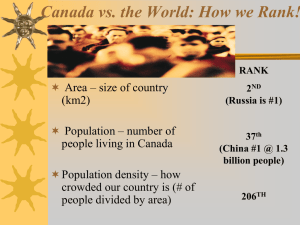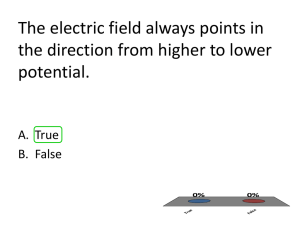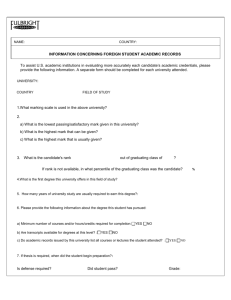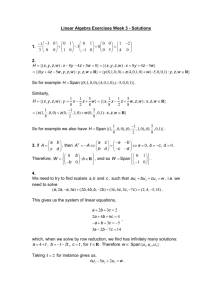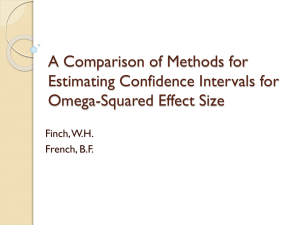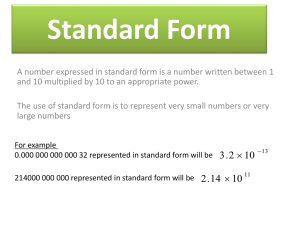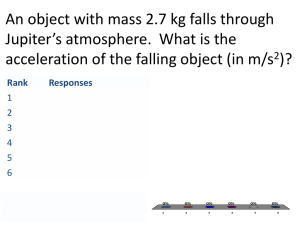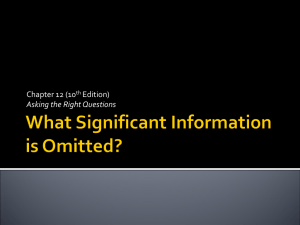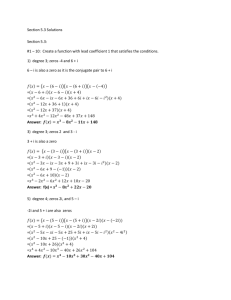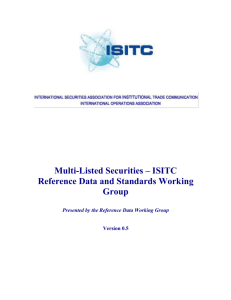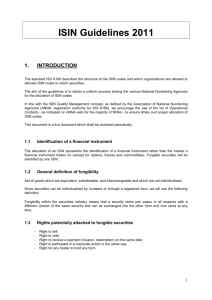Math 362
advertisement
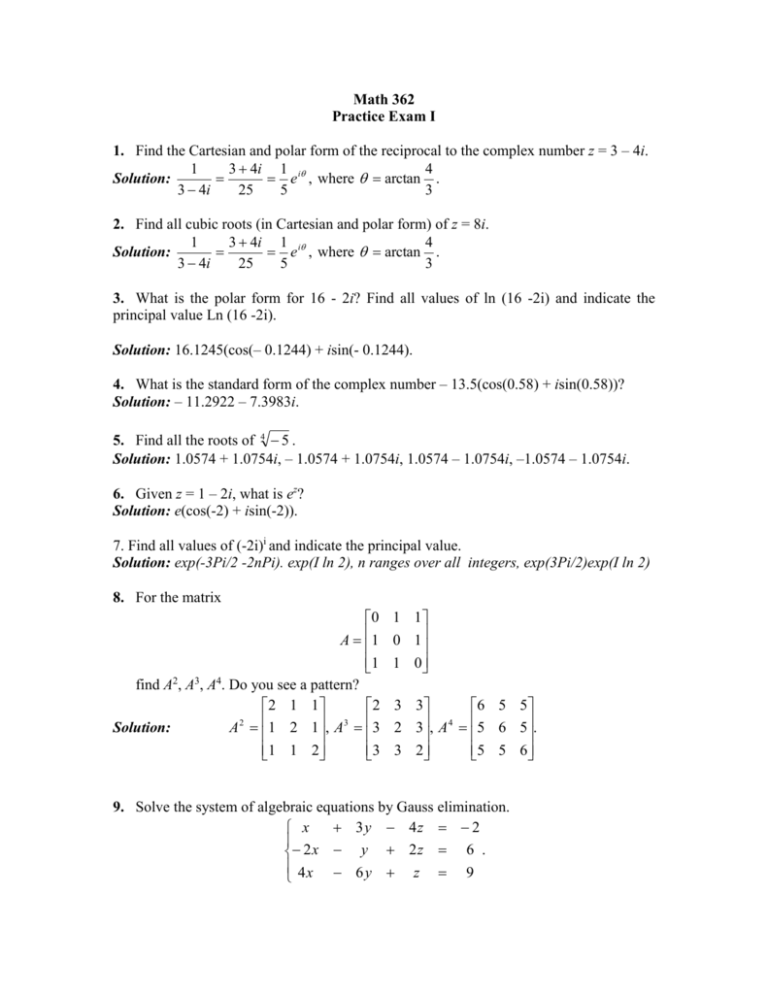
Math 362
Practice Exam I
1. Find the Cartesian and polar form of the reciprocal to the complex number z = 3 – 4i.
1
3 4i 1 i
4
e , where arctan .
Solution:
3 4i
25
5
3
2. Find all cubic roots (in Cartesian and polar form) of z = 8i.
1
3 4i 1 i
4
e , where arctan .
Solution:
3 4i
25
5
3
3. What is the polar form for 16 - 2i? Find all values of ln (16 -2i) and indicate the
principal value Ln (16 -2i).
Solution: 16.1245(cos(– 0.1244) + isin(- 0.1244).
4. What is the standard form of the complex number – 13.5(cos(0.58) + isin(0.58))?
Solution: – 11.2922 – 7.3983i.
5. Find all the roots of 4 5 .
Solution: 1.0574 + 1.0754i, – 1.0574 + 1.0754i, 1.0574 – 1.0754i, –1.0574 – 1.0754i.
6. Given z = 1 – 2i, what is ez?
Solution: e(cos(-2) + isin(-2)).
7. Find all values of (-2i)i and indicate the principal value.
Solution: exp(-3Pi/2 -2nPi). exp(I ln 2), n ranges over all integers, exp(3Pi/2)exp(I ln 2)
8. For the matrix
0 1 1
A 1 0 1
1 1 0
find A2, A3, A4. Do you see a pattern?
2 1 1
2 3 3
6 5 5
2
3
4
Solution:
A 1 2 1, A 3 2 3, A 5 6 5.
1 1 2
3 3 2
5 5 6
9. Solve the system of algebraic equations by Gauss elimination.
3 y 4z 2
x
2 x y 2 z 6 .
4x 6 y z 9
Solution:
x = 2, y = 0, z = 1.
10. Use Gaussian elimination to obtain the solution of the following system of algebraic
equations:
2 x 5 y 3z 1
x 2 y z 2 .
x y z 0
Solution:
x = - 1, y = 0, z = 1.
11. Rewrite the following system of algebraic equations
2 y 2z 6
x
2 x y 2 z 0
2x 2 y z 3
in the matrix form Ax = b and solve it by Gaussian elimination.
Solution:
x = 8, y = - 2, z = - 9
12. Write the following system in matrix form.
x + y + z = 1, x + 2x + 3z = 2, y + z = 3.
What are the coefficient matrix A and the augmented matrix A ? What are their
ranks? Solve this system.
Solution:
1 1 1 | 1
1 0 1
1
A 1 2 3 | 2, A 1 1 2 , x 2, y 5, z 2. Rank A = Rank A = 3
0 1 1 | 3
1 1 1
13. For the following linear system determine all values of a for which the resulting
linear system has (a) no solutions; (b) a unique solution; (c) infinitely many solutions.
x + y + z = 2, 2x + 3x + 2z = 5, 2x + 3y + (a2 –1)z = a + 1/.
Solution : (a) a 3; (b) a 3; (c) There is no value of a such that this
system has infinitely many solutions.
14. Given the following matrices,
4 12
3
2
A 1
3 , B
4 1
3 9
(a) Multiply matrices A and B to get AB.
(b) Does BA exist? Justify your answer.
(c) Are the columns of matrix A linearly independent? Justify your answer.
(d) Find the rank of A, B, and AB.
(e) Do the columns of matrix A span R3? Justify your answer.
(f) Do the columns of matrix B span R2? Justify your answer.
(f) Do the columns of matrix B span R2? Justify your answer.
Solution:
(a)
(b)
(c)
(d)
(e)
(f)
24
56
AB 14
6 .
42 18
No.
No.
rank(A) = 1, rank(B) = 2, and rank(AB) = 1.
No
Yes
15. Mark each statement True or False.
(a)____In some cases, it is possible for six vectors to span R5.
(b)____If a system of linear equations has two different solutions, then it has
infinitely many solutions.
(c)____The equation Ax = b is homogeneous if the zero vector is a solution.
(d)____If v1 and v2 span a plane in R3 and if v3 is not in that plane, then {v1, v2, v3} is
a linearly independent set.
Solution:
(a) True.
(b) True.
(c) False.
(d) True.

